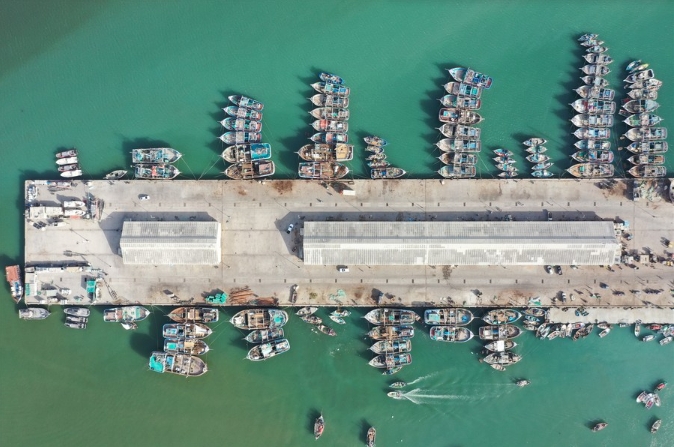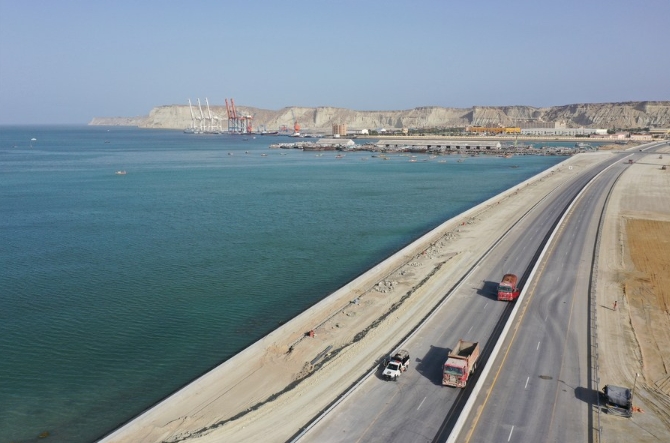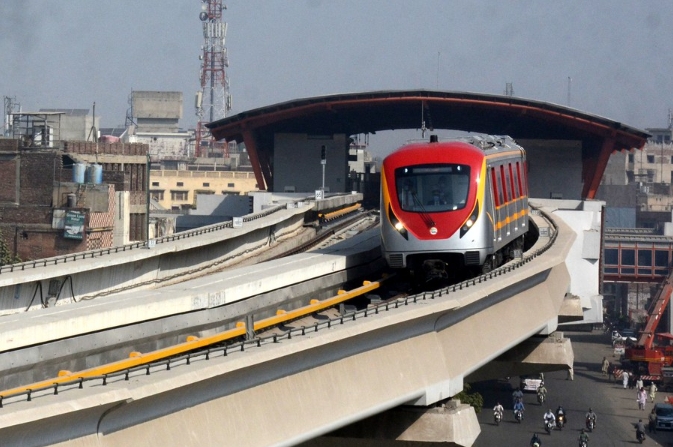Pakistan's Balochistan to be tourism hub after inauguration of CPEC airport project, says official

This aerial photo taken on June 4, 2022 shows a port for fishermen in Gwadar of Pakistan's southwest Balochistan Province. (Xinhua/Jiang Chao)
"In recent years, Pakistan's domestic tourism has boomed, and CPEC is the major driving factor behind it because it enhanced connectivity and made road travel easy and shorter for the tourists," Managing Director of Pakistan Tourism Development Corporation (PTDC) Aftab ur Rehman Rana said.
by Misbah Saba Malik
Pakistan's southwest Balochistan province has the potential to become a hub of domestic and international tourism after the inauguration of the New Gwadar International Airport, a donation by the Chinese government under the framework of the China-Pakistan Economic Corridor (CPEC), a Pakistani official said.
"In recent years, Balochistan has experienced a notable surge in domestic tourism and with the commencement of the airport operations, geographical distances are expected to diminish, paving the way for an influx of tourists into Gwadar and its surrounding regions," Managing Director of Pakistan Tourism Development Corporation (PTDC) Aftab ur Rehman Rana told Xinhua in a recent interview.
To facilitate tourism, the PTDC will establish a tourist information center at the airport to provide them with comprehensive information about hotels, tourist sites, and all other basic information, the officer said.
He added that in order to tap the potential of the airport, the Balochistan Coastal Development Authority has made a master plan, and marked the areas along the coast on which tourist sites will be developed.

Aerial photo taken on June 4, 2022 shows a section of the China-aided Eastbay Expressway of Gwadar port in Gwadar of Pakistan's southwestern Balochistan province. (Xinhua/Jiang Chao)
"Balochistan boasts a stunning coastal stretch, and there are ongoing efforts to develop eco-tourism resorts, beach parks, floating jetties, and relaxation spots along this coastline to cater to both domestic and international tourists, including those visiting Gwadar for business reasons," Rana added.
Talking about the security of the tourists, he said that in the initial stage, group tourism will be permitted, primarily driven by security considerations.
"Tourists will be required to share their travel plans with a dedicated tourism police force, which will be established to enhance safety and support tourism activities. During this phase, tourists will receive security provisions as they travel in organized groups," Rana said.
Subsequently, in the second phase, individual tourists will have the opportunity to explore the area independently when tourism becomes more common, and a comprehensive security plan is established in the area, he added.
Lauding CPEC for playing a great role in promoting tourism in his country, Rana said that its road network passes almost through the whole of Pakistan, and all major tourism sites are around the CPEC route.
"In recent years, Pakistan's domestic tourism has boomed, and CPEC is the major driving factor behind it because it enhanced connectivity and made road travel easy and shorter for the tourists," he added.

Photo taken on Nov. 8, 2020 shows an Orange Line metro train leaving a station in Pakistan's eastern city of Lahore. The first ever metro train service in Pakistan is achieved as one of theChina-Pakistan Economic Corridor (CPEC) projects. (Photo by Sajjad/Xinhua)
The officer said that they are currently engaged in discussions with Chinese tour operators to attract China's outbound tourists and business professionals to Pakistan.
In line with these efforts, a group of tour operators from China recently visited Pakistan, and a delegation of Pakistani tour operators is scheduled to visit China to participate in the China Outbound Travel and Tourism Market exhibition in November, the PTDC officials said.
"Pakistan has a great business potential in the tourism sector, and if Chinese investors invest in building hotels and resorts in Pakistan, it will not only attract Chinese tourists to Pakistan but also uplift the overall tourism industry in the country," he added.
Launched in 2013, CPEC, a flagship project of the China-proposed Belt and Road Initiative, is a corridor linking Pakistan's Gwadar port with Kashgar in northwest China's Xinjiang Uygur Autonomous Region, highlighting energy, transport, and industrial cooperation.
Editor:王予
